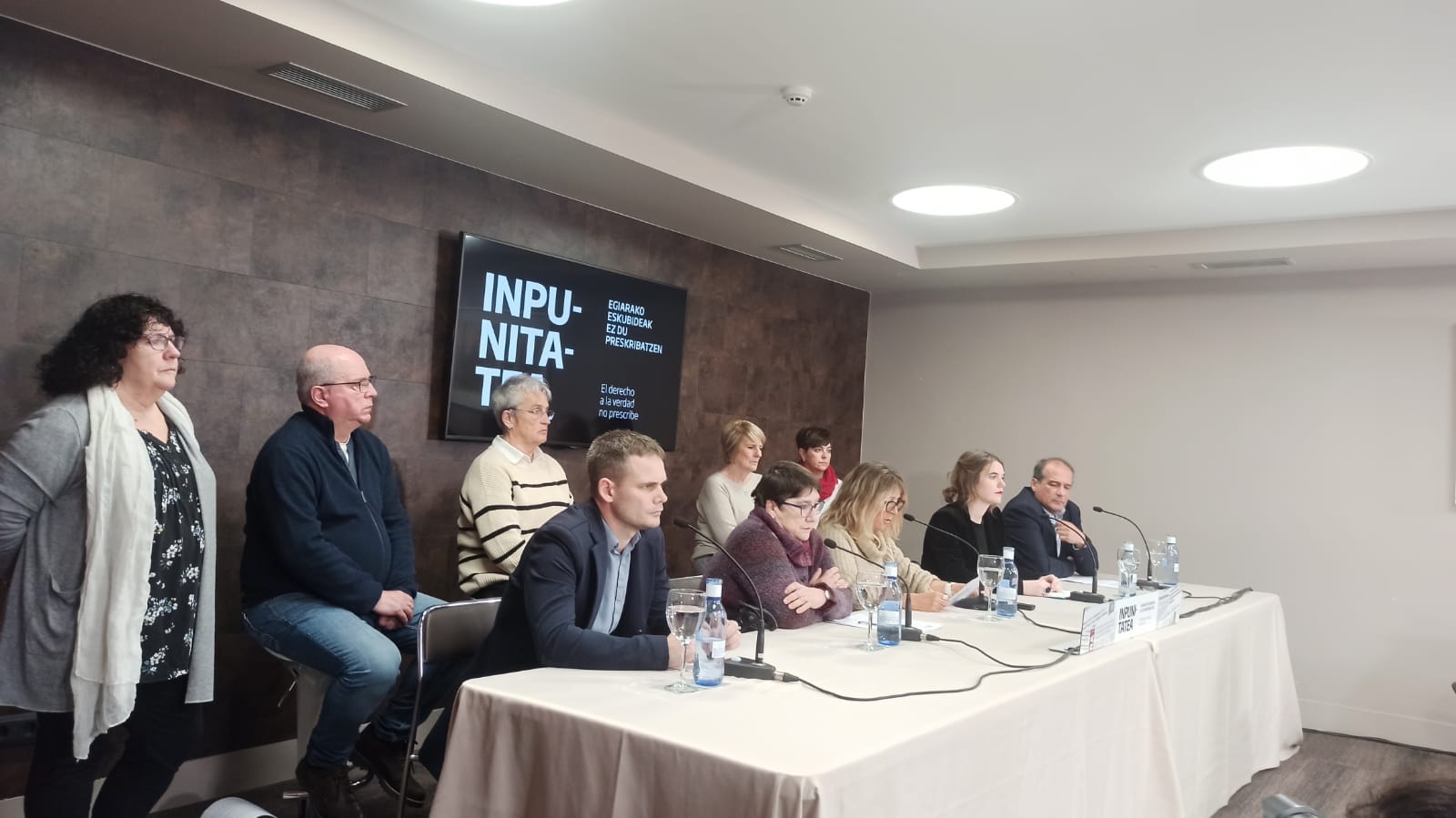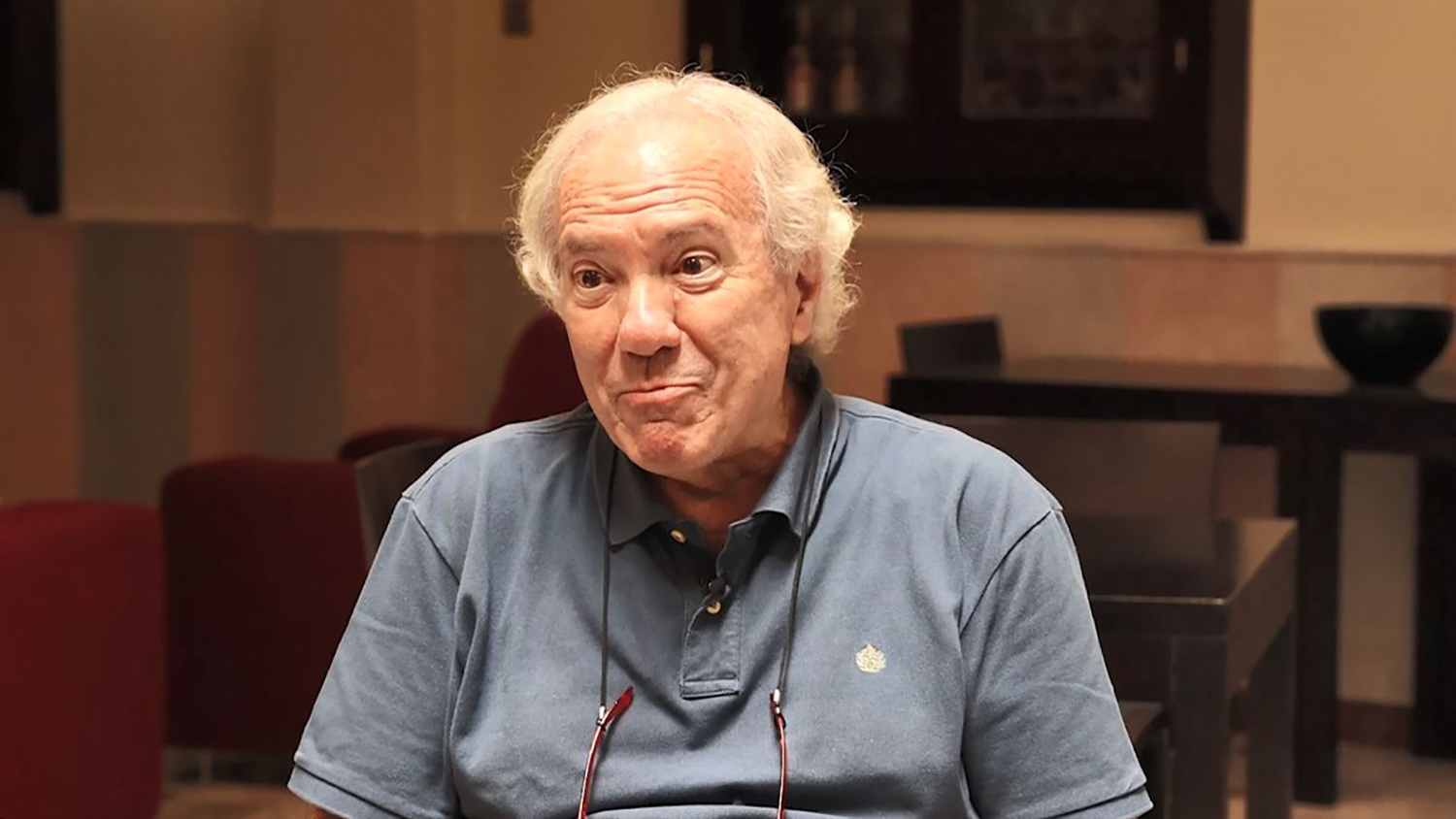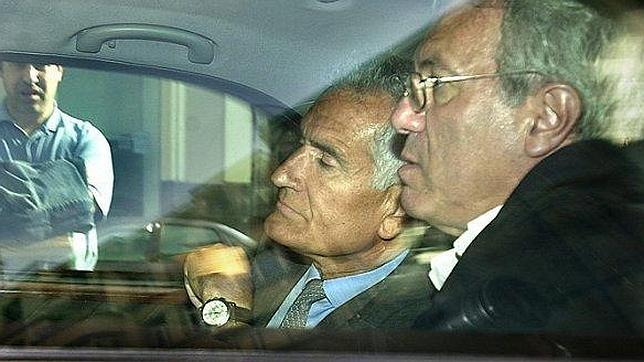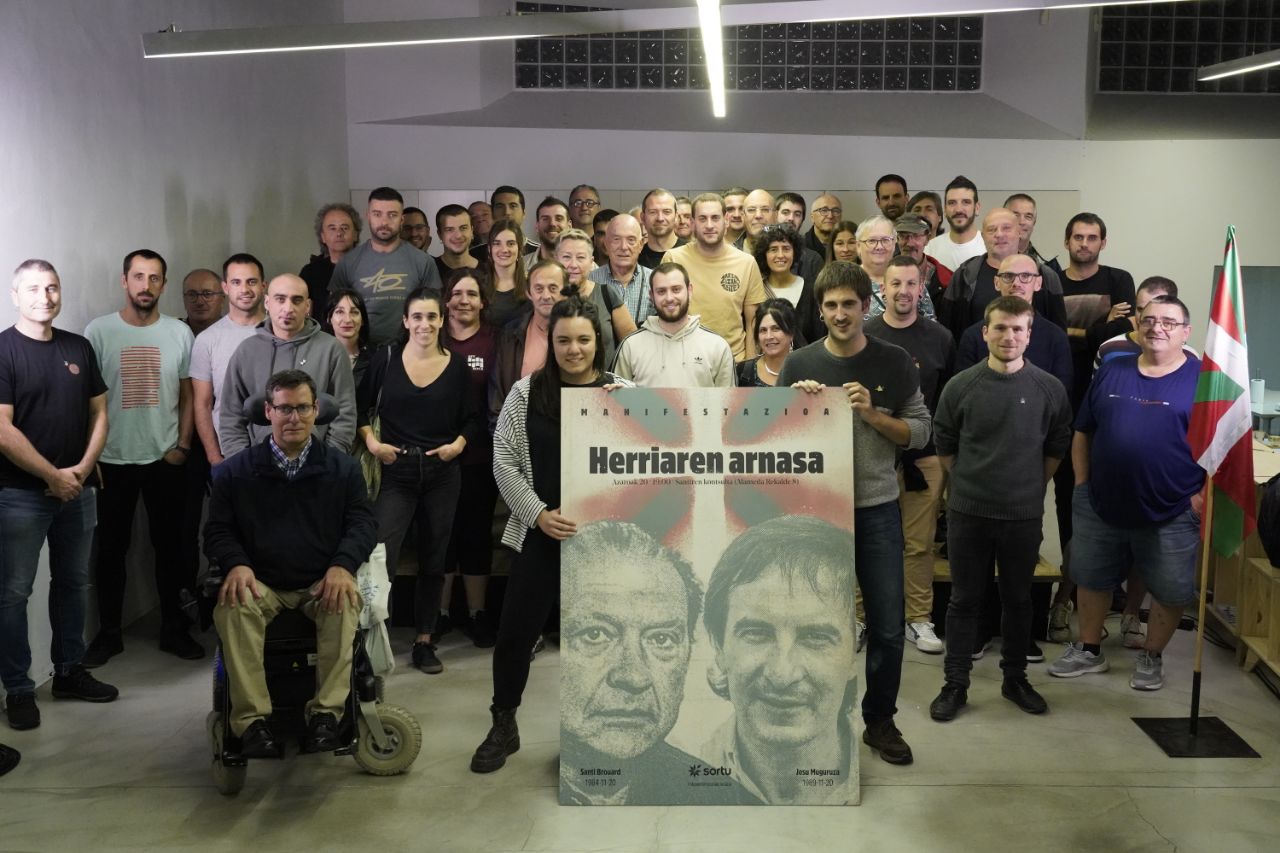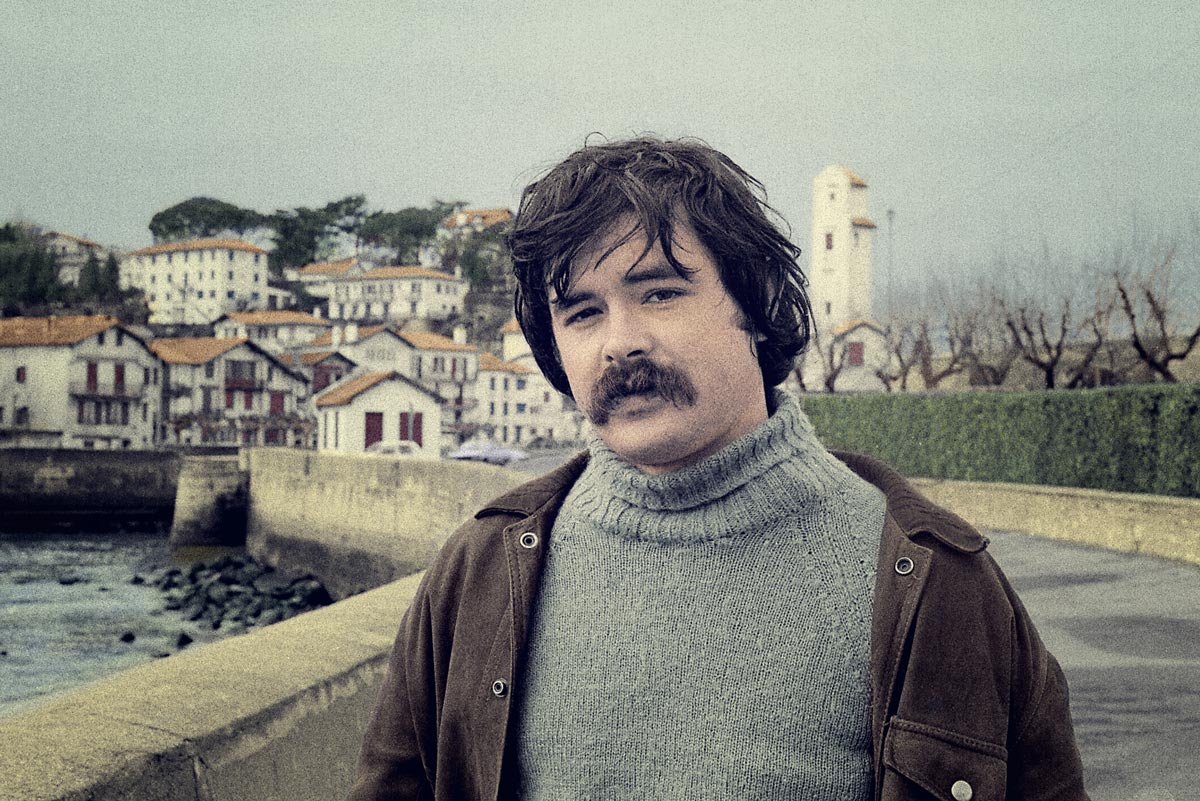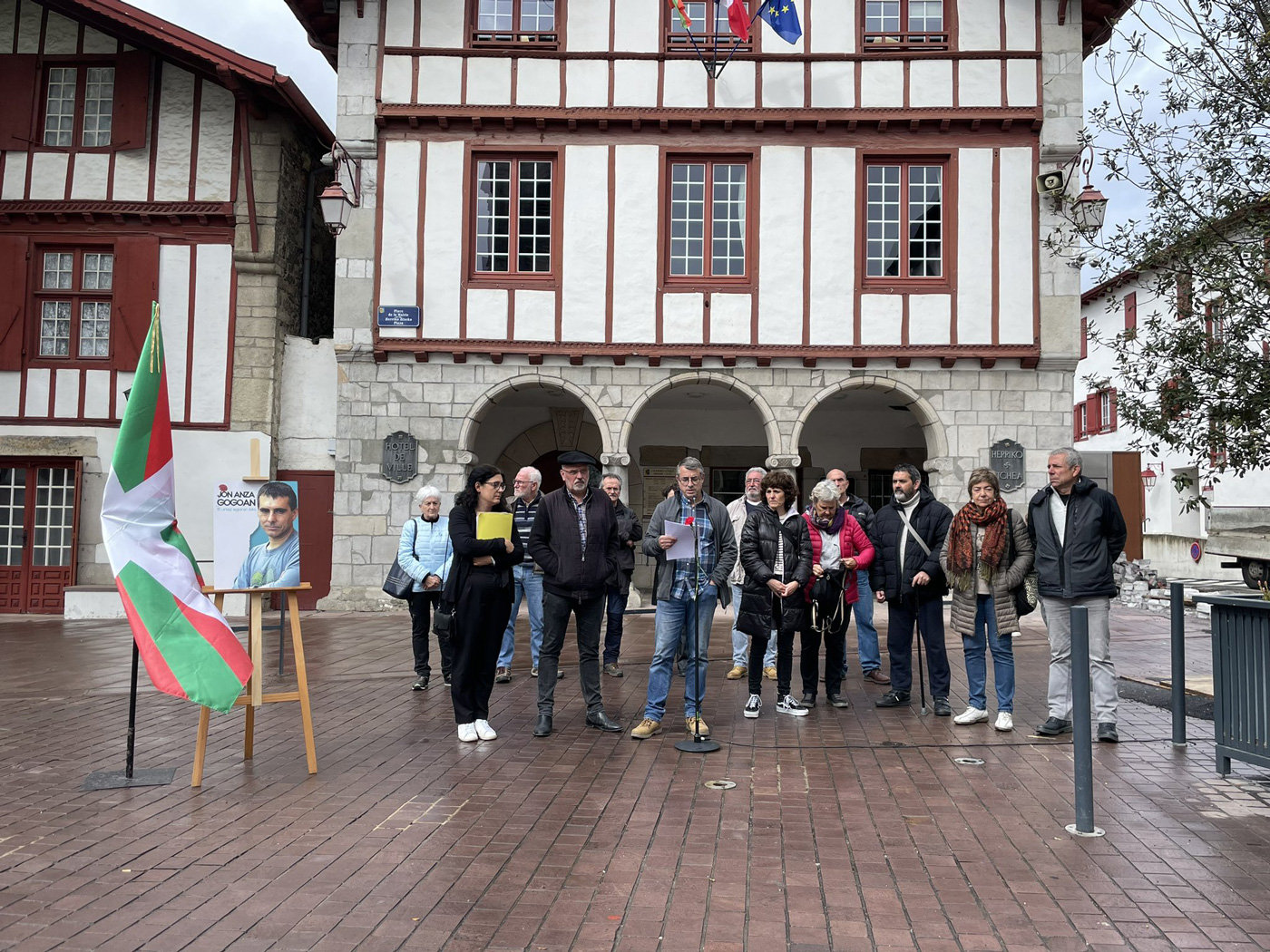Former Spanish Interior Minister Barrionuevo preserves state terrorism
- Last weekend, former Interior Minister José Barrionuevo made a recognition and support for the dirty war that has occurred in Euskal Herria, in an interview published by the newspaper El País. It has shown its direct participation. Barrionuevo was Minister of the Interior between 1982 and 1988, in the PSOE government chaired by Felipe González. Pardoned by the PP after being convicted by the courts for the kidnapping of Segundo Marey.

Barrionuevo has given data on his personal involvement in state terrorism over the weekend. He points out that he ordered the kidnapping of José María Larretxea, member of ETApm, “to be arrested and transferred to Spain” for being in charge of the operation of the kidnapping of Captain Alberto Martín Barrios: “They captured him, but he was a big guy, put resistance and didn’t enter the trunk. While fighting, the French police arrived and frustrated the kidnapping.” This attempted kidnapping was explained by Larretxea herself in an interview with Egunkaria in 1996, deported in Cuba.
On the contrary, he says he did not order the kidnapping of Segundo Marey. He explains that the kidnapping was committed by a group of the Spanish Police, believing that he was a head of ETA, and that when he knew the kidnapping and the error he gave orders to release Marey: "If not, you know what the alternative was." In fact, Barrionuevo was sentenced for the kidnapping of Segundo Marey by the Spanish National Court to ten years in prison with Rafael Vera.
Felipe González and José Amedo
Regarding his sanction, the former Interior Minister says: “That shot wasn’t going against me, but I was on the bullet’s way, and I refused to bow or march. I think what was in the shot is aware that things went like this.” Former President Felipe González publicly supported Vera and Barrionuevo on several occasions and accompanied them to the door on the day they entered Guadalajara prison. Barrionuevo also states that he proposed to pardon former Spanish police José Amedo and the declared member of the GAL, but that the government did not accept because “González did not dare”. By the way, he praised Amedo’s work: “He did a lot wrong, but he had as a confidant a member of the Public Union executive.”
Impunity
The dialogue highlights the impunity of state terrorism. In Larretxea's attempted kidnapping, Barrionuevo says: “I assumed this, I stated that I sent, and there was no consequence, the courts did nothing...” In connection with Marey's kidnapping, the journalist asks whether, in addition to giving the order of liberty, he did not need to account for the crime: “I can’t throw my trench at those who are shooting, as much as they do the wrong shot.” Barrionuevo participated as a minister of a PSOE government in state terrorism, was sentenced by the courts in 1998 to ten years in prison, but only three months after the then ruler PP pardoned him. Then Barrionuevo ran the risk of returning to jail, and in the interview he states that the then Interior Minister, Mariano Rajoy, called the phone: “He said, “I can’t allow you to go back to jail, we will fix it.” And so it was.”
Effectiveness of State terrorism
Barrionuevo shows no regret in the interview. On the other hand, he proudly speaks of what was done, smiles at the time of making some heartbreaking passages known, and explains that state terrorism bore fruit, such as the involvement of the French State in the fight against ETA in the Northern Basque Country. He gave an interview with Pierre Joxe, former Minister of the Interior of the French Government, on the attacks in Iparralde: “Pierre Joxe told me: ‘It is better that these things do not happen for both, we will take action [against ETA]’. In this regard, it has recognised the attacks by state terrorism in Iparralde: “The attacks in France, all inadequate, far inadequate, showed that the [ethnic groups] were in France.”
Fusilamenduak, elektrodoak eta poltsa, hobi komunak, kolpismoa, jazarpena, drogak, Galindo, umiliazioak, gerra zikina, Intxaurrondo, narkotrafikoa, estoldak, hizkuntza inposaketa, Altsasu, inpunitatea… Guardia Zibilaren lorratza iluna da Euskal Herrian, baita Espainiako... [+]
GALeko biktima talde batek eman du kereilaren nondik norakoen berri Bilbon egindako prentsaurrekoan, Egiari Zor fundazioak eta Giza Eskubideen Euskal Herriko Behatokiak lagunduta. GALen aurkako eta, zehazki, José Barrionuevoren aurkako kereila aurkeztuko dute.
Felipe Gonzálezen garaian Espainiako Barne ministroa zen José Barrionuevoren aurkako kereila aurkeztuko dute, Ipar Euskal Herriko errefuxiatuen aurka abiatu zuen estrategiagatik. ZEN Zona Especial Norte Planaren barruan egindako ekintzen erantzule nagusietako bat... [+]
Maiatzaren 30ean Nafarroako Gobernuak zenbait biktimaren aitortza egin zuen eta senitartekoek Sekretu Ofizialen Legea bertan behera uzteko eskatu zuten. Horien artean, Mikel Zabalza eta Mikel Arregiren familiak. ‘Naparraren’ anaiak ere egina du eskaera hori. Eneko... [+]
Jose Miguel Etxeberria, Naparra, aurkitzeko bigarren saioak porrot egin du Landetako Mont de Marsan herriko inguruetan. Iruñean ostiral honetan egindako agerraldian horren berri eman dute Eneko Etxeberria Naparra-ren anaiak eta Iñaki Egaña Egiari Zor... [+]










